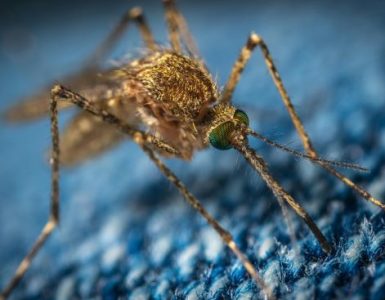The good news is, the risk of developing Long COVID has dropped significantly since the start of the pandemic—and, according to a new study, we have COVID-19 vaccines to thank for much of this decline. The bad news is, the risk of developing this post-acute infection syndrome remains substantial.
At the pandemic’s onset, approximately 10% of people who suffered COVID-19 infections went on to develop Long COVID. Now, the risk of getting Long COVID has dropped to about 3.5% among vaccinated people (primary series). While this is a considerable decline, over 1.3 million Americans are still becoming infected with SARS-CoV-2 every day. “You do the math—3 to 4% of those people is a huge number of potential Long COVID patients being added to the roster,” says Ziyad Al-Aly, MD, chief of Research and Development Service at Veterans Affairs St. Louis Health Care System and the study’s senior author.
The study also revealed that COVID-19 vaccinations played a key role in the drop in Long COVID cases. The researchers published their findings in The New England Journal of Medicine on July 17.
The FDA recently approved updated COVID-19 vaccines. The study’s finding are an important reminder to roll up your sleeve and get vaxxed this fall. “We’ve been educating our patients that the goal of COVID vaccines is to keep them out of the hospital and from dying,” says Scott Roberts, MD, assistant professor of infectious diseases at Yale School of Medicine, who was not affiliated with the study. “We need to continue messaging that an added benefit of the vaccines is that they could also prevent Long COVID down the road.”
Long COVID cases decline with each new variant
For their study, Dr. Al-Aly’s team utilized databases within the VA to identify nearly 450,000 veterans who had been infected with SARS-CoV-2, as well as healthy controls. They divided this cohort into era-specific groups based on the SARS-CoV-2 variant: pre-Delta era (no vaccination), Delta era (no vaccination), Delta era (vaccinated), Omicron era (no vaccination), and Omicron era (vaccinated). They followed each group for a year to identify which one was most at risk for developing Long COVID symptoms. The researchers found that the rate of new Long COVID cases declined with each variant, and that the numbers of cases were significantly lower in the vaccinated cohorts.
Then, the team conducted analyses to uncover the reasons for the observed decline in Long COVID cases from the pre-Delta to Omicron eras. About 70% of the decline was attributable to vaccination, they found. There are several reasons to explain why vaccines may prevent Long COVID, says Dr. Al-Aly. First, vaccines reduce the risk of severe acute infections, which are linked to a greater risk of Long COVID. Vaccines also help the body’s immune system to eliminate the virus more quickly, reducing the likelihood that lingering viral particles are left behind. Viral persistence is one of researchers’ multiple hypotheses for the drivers of Long COVID. “That really means that maintaining vaccination uptake is likely to be an important driver to keep the lid on Long COVID,” Dr. Al-Aly says.
The other 30% was related to changes in viral characteristics. In other words, as SARS-CoV-2 evolved, it changed in ways that may have made people less susceptible to developing Long COVID.
Interestingly, while the overall risk of Long COVID has declined, the researchers found that unvaccinated individuals now face a greater chance of developing metabolic and gastrointestinal disorders, including diabetes and dyslipidemia (abnormal levels of fat in blood), post-COVID compared to earlier groups. “We have a large cohort of people with metabolic disorders in the United States who may be at particular risk of those being exacerbated with COVID,” says Dr. Roberts. “This needs to be looked at in greater detail.”
How will Long COVID risk continue to evolve?
Long COVID afflicts 400 million people around the world, and experts estimate that the disease has an economic impact as high as $1 trillion each year, according to a recent review including Dr. Al-Aly and Akiko Iwasaki, PhD, Sterling Professor of Immunobiology. The latest study inspires the question—will SARS-CoV-2 continue to evolve so that one day the risk of Long COVID might become negligible? Experts still don’t know, says Dr. Al-Aly. “Theoretically, it’s possible, but from what we’ve seen so far, I doubt it.”
The risk of Long COVID is not static, the findings show. It could continue to decline or might potentially bounce back if more people choose to forgo vaccination. Scientists will need to continue to monitor SARS-CoV-2 and how it evolves to understand how Long COVID risk patterns change with it. Dr. Al-Aly’s team plans to conduct long-term studies and characterize the effects of Long COVID on various organ systems. In the meantime, keeping up with vaccinations will be very important for reducing your personal risk, he says.
“If Long COVID was a kid, it would be in kindergarten,” he says. “It’s very young and very new, and there’s a lot to learn.”
Source: Yale Medicine

















